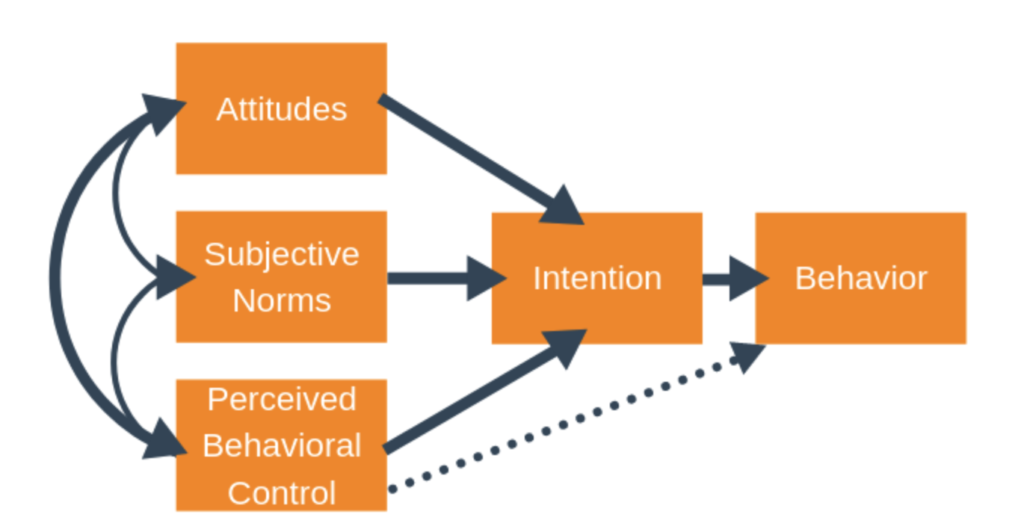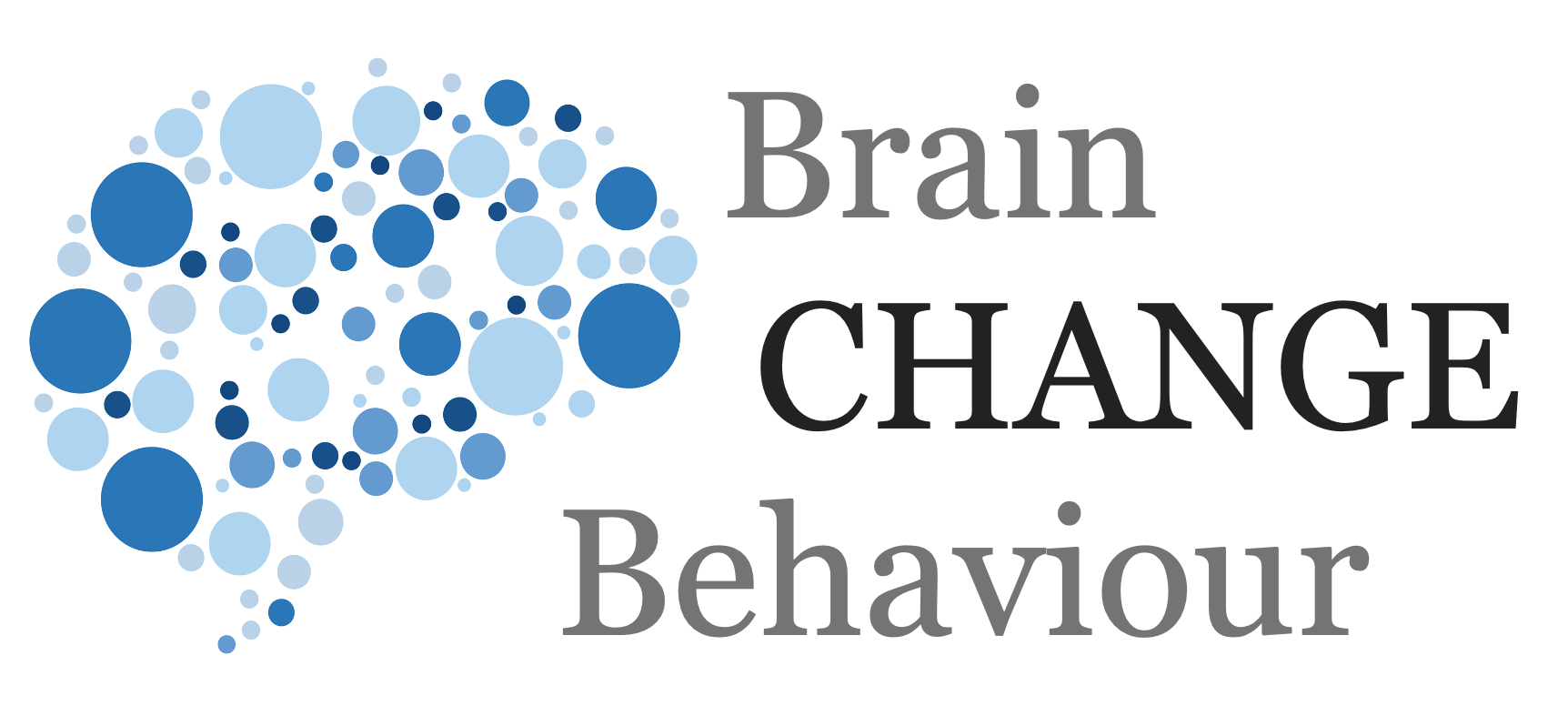Article
Change Models

The theory of planned behaviour is a psychological theory proposed by Icek Ajzen that links beliefs to behaviour. This builds on the theory of reasoned action. The theory maintains that three core components shape behaviour
- Attitude
- Subjective norms
- Perceived behavioural control
These together shape an individual’s behavioural intentions. In turn, a tenet of TPB is that behavioural intention is the most proximal determinant of human social behaviour.
Attitudes
- Behavioural beliefs: personal beliefs about the behaviour and whether this is considered positive or negative. This leads to:
- Attitude towards behaviour.
Subjective Norms
- Normative belief: an individual’s perception of social normative pressures, what are standards of behaviour. This influences:
- Subjective norm: an individual’s perception about the particular behaviour, which is influenced by the judgment of (especially significant) others.
Perceived behavioural control
- Control beliefs: an individual’s beliefs about the presence of factors that may facilitate or hinder performance of the behaviour. This leads to:
- Perceived behavioural control: an individual’s perceived ease or difficulty of performing the particular behaviour. The concept of perceived behavioural control is conceptually related to self-efficacy. It is assumed that perceived behavioural control is determined by the total set of accessible control beliefs.
Behavioral intention
- Behavioral intention: an individual’s readiness to perform a given behaviour. It is assumed to be an immediate antecedent of behaviour.
Behaviour
- Behavior: an individual’s observable response in a given situation with respect to a given target. Ajzen advanced the view that a behaviour is a function of compatible intentions and perceptions of behavioural control. Perceived behavioural control is expected to moderate the effect of intention on behaviour, such that a favourable intention produces the behaviour only when perceived behavioural control is strong.
Summary
The theory of planned behaviour is one that is defined by belief systems and behavioural intentions and antecedents to behaviour. This includes the social environment. Of note is that the concept of self-efficacy is also included in perceived behavioural control.
Simple Takeaways
-
- The influence of attitudes, subjective norms, control beliefs leads to behavioural intentions which guide behaviour.
- You can influence behaviour by influencing the above factors.
© leading brains 2022
Reference
More Articles
To Change, Start Right Away
Sorry, stupid question right off the cuff. Change what?
Well, in this recent study they were looking at changing health behaviours.
Nudges Work In Changing People’s Behaviour
So what do you mean by “nudges”?
Richard Thaler is considered is one of the founding fathers of nudge theory in the behavioural sciences proposing nudges as the best method to modify people’s behaviour. Made popular by his book Nudge in 2008.
Followers Make Group Decisions a Lot Worse, or a Lot Better
First off, why is group decision-making important?
Well, a lot (just about all, if you think about it) of the biggest decisions in society and in business are made by groups: executive committees, governments, even the population in referendums.
The Right Rewards Boost Creativity in Business
So who doesn’t want to have creative ideas in their business.
The problem is getting employees to be creative while doing their day job as well. We also know that just asking or demanding creativity can diminish creativity and innovation!
Changing Your Personality — Even If You Don’t Want To!
Are you telling me that our personality can change even if we have no motivation to do so?
In a nutshell, yes. But it depends on which personality trait!
Exercise is Infectious
This is an older study (2017) I came across and found fascinating. As many of you regular readers will know I have reported many times on the benefits of exercise.
Why our Brains Miss Opportunities for Innovation
When we think of innovation we think of creating something new. A new study shows that, however, we, by default, try to add something whereby subtracting something could make something better.
Brain Region for Changing Behaviour Identified
The saying goes “Insanity is doing the same thing over and over again and expecting different results.” This obviously refers to doing the same thing over and over and continually getting a bad result
From Couch to Ultra Marathon with Mental Imagery
On first glance I thought the above headline was fascinating. I am a sports person, look into the neuroscience of motivation, and have been in the “motivational” space for nigh on two decades.
Limits to Scalability – Voltage Drops
Voltage Drop is a useful term and analogy to the problems of scaling ideas or change in any environment. Voltage drop refers to how electrical current can decrease across distance it travels.










